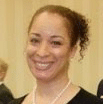Table of Contents
Curriculum is an important factor in educating our youth in school. As such, having educators who understand our ever-evolving global society is critical to serving on curricular teams. When looking at curriculum and how it is developed, we must also look at how the curriculum is monitored. One way to do this is through the assessment process. Having experience in curriculum development and implementation, it is clear that curriculum is at the core of making informed decisions.
According to the Center for Standards, Assessment, and Accountability, 2023, “formative assessment has been integrated into policies related to curriculum.” When speaking about curriculum, districts must include conversations about standards. These conversations should be held with chairpersons for the curriculum team committee and meeting scheduled. These meetings are usually held weekly and wave specific agenda items to discuss and actionable next steps.
The Purpose of Curriculum
The purpose of a curriculum team is to set up concepts that aim toward the content subject matter. These conversations held during the meetings are geared around building a curriculum for all standard-based content areas. The personnel involved in these conversations include executive-level experts.
According to the NJ State Department of Education, “there are three questions educators should ask when prioritizing standards. Does the standard lead to an enduring understanding of the information or skill? Is the standard important for future classes or courses in school? In the longer term, is this standard important for the student’s success in college, career, or life, in general?” Once districts can answer these questions, the work that goes into curriculum development and implementation can begin to unfold.
Involving Stakeholders in Curriculum Planning
When building a curriculum, it is necessary to involve all stakeholders. Stakeholders should include but not be limited to students, parents, teachers, department leads, and school board representatives. District boards set policies and select curricula to implement within schools. As such, communities must get involved in the election process, so all voices have a seat at the table when selecting and planning for curriculum decisions.
An example of this is happening in Texas, where the state Board of Education faces controversy over changes to the social studies curriculum. According to Spectrum News 2023, “…dozens of people went before the board to ask for changes to the way social studies are taught in public schools.” Curriculum building is done with all stakeholders, including but not limited to administration, parents, teachers, students, board members, and the chairperson for the curriculum committee. When building a curriculum team, it is imperative to have experts for all content areas to take part in the process.
The curriculum is essential in educating our youth in our global society. The development and monitoring of the curriculum tie together when making informed decisions and involving all stakeholders in this process. A curriculum built to educate our youth to be members of the global society consists of real-world elements that students can connect with and apply.
The Importance of Well-Rounded Resources
While the curriculum is the heart of educating our youth in K-12 schools, the resources to support the curriculum are equally important. These resources should include but not be limited to digital resources, manipulatives, videos, games, and hands-on experiences. When planning lessons, teachers must keep in mind the resources that will enhance the in-class learning opportunities for all students connected to the curriculum. Curricular resources should align with the curriculum while ensuring that all modes of learning are represented and monitored.
When selecting a curriculum, it is also essential to remember how it is examined through assessments. Assessments are critical in measuring student achievement, and the curriculum should inform how educators use assessment results to track student performance.
According to the Center for Standards, Assessment, and Accountability, 2023, “implementing formative assessment and supporting teacher and leader learning in order to guide new ways for teachers and students to engage in evidence” is what was learned. As such, selecting a curriculum supporting achievement is essential in educating our youth.
Stay Connected with edCircuit; subscribe today.






